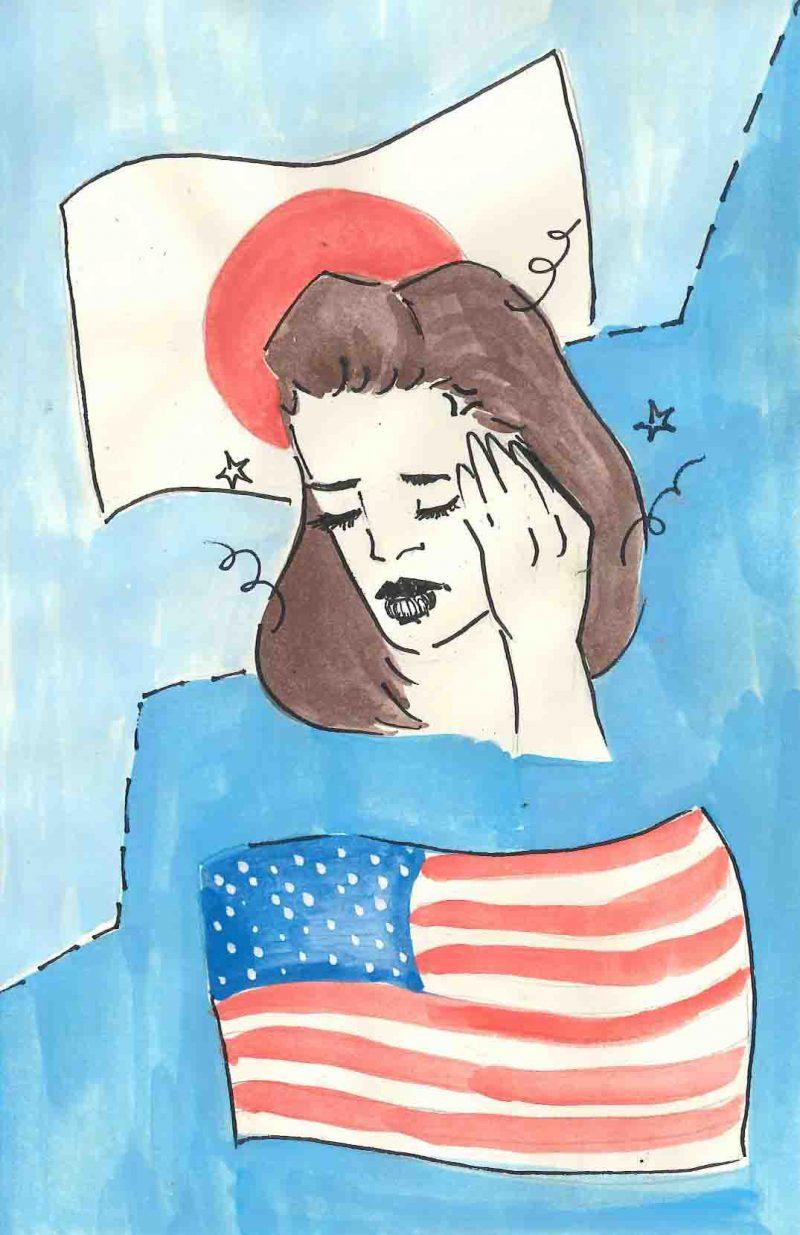“Mom, I really don’t think I can handle this right now,” said Destiny Hopkins, senior sociology major.
For Hopkins, a trip to the supermarket last year turned hazardous. Standing with her mom in one of the grocery aisles, Hopkins became overwhelmed by the American brands and diverse people in pajamas.
Soon, she became dizzy and was forced to leave the store with her mom, feeling sick and anxious. Hopkins, who had been living in Japan for a semester, was experiencing reverse culture shock upon her return to the United States.
“Coming back was a whole different story. I definitely didn’t expect to experience reverse culture shock, but it definitely happened,” Hopkins said.
Each semester, Trinity University students study abroad in foreign countries, creating a completely different lives from their existences in San Antonio. However, sometimes this transition is not seamless. Some students experience culture shock when they arrive in their host country and some experience reverse culture shock when they return home.
Experiencing culture shock is not uncommon. The Center for International Engagement at Trinity University gives a presentation to students before they go to their host country for the semester or summer, warning them of the possibility of experiencing culture shock.
“You just land in your host country and everything is different — food, money, people, clothing, music, signs, language, smells — and you haven’t even left the airport. Some students have an easier time adjusting to what is unfamiliar than others,” wrote Andre Martinez, assistant director for study abroad, in an email interview. “Culture shock for students is like the ‘upside down’ in ‘Stranger Things’ — a few freeze and have a hard time but most students are like, ‘okay, this is cool’ — without all the monsters of course.”
Brenda Ramos, junior and business administration major, has fond memories of all the walking she did during her time in Spain last semester. Ramos looks back on her time in Spain through the number of steps she had to endure.
“People were so sore,” Ramos said.
Although this was unfamiliar to Ramos, she adjusted to the new culture and came to enjoy it. When Ramos returned to America, she had to adjust to another culture she wasn’t used to.
“I never realized how sedentary we are here. I hated coming back because I have a Fitbit, and I would get 20,000 steps every day while in Spain. People got so sore from walking around everywhere. You come back here and get maybe 2,000 a day,” Ramos said.
Ramos spoke about what she learned about culture shock and reverse culture shock on her semester abroad.
“The first common thing is that you begin to think that America is better than the place you’re at, or you can go the other way — this place is better than America. Neither one of those is right because you should always be looking at it as this is just different,” Ramos said.
After being abroad for months, students usually need time to adjust back to their lives in the United States.
This transition can be harder and take longer for some students. When students experience reverse culture shock, it is often because they miss their host country and acknowledge the advantages other countries may have.
“When students return home, they often see how imperfect the U.S. is, which is a good thing. How can the problems in our home country be fixed when we don’t know what solutions out there are possible? Students who go abroad often see how public transportation should work or how serious some people view environmental issues, such as recycling. So when they get back here, they are sad,” Martinez wrote.
The study abroad office recommends that students research their host country before leaving and communicating with their program directors if they have issues.
This can help prevent students from feeling isolated or unhappy while on their semesters abroad.
“Problems arise usually due to miscommunication — with roommates, professors, friends — or misunderstandings based on one’s own culture, so it is best if students have a continuous dialogue with everyone. Plus, it is a great way to get to really know other people they meet abroad,” Martinez wrote.
Although studying abroad can present some difficulties, students and faculty still encourage others to study abroad. The study abroad office hopes to increase the number of students they send abroad in the upcoming years.
“Overall, our goal is to have at least 60 percent of all Trinity graduates study abroad by 2022–2023, which I think we can easily accomplish,” Martinez wrote.
Although Hopkins experienced reverse culture shock, she still encourages fellow students to study abroad if they are able.
“It was the best experience of my life. I needed a change in pace, and what better way to do that than studying abroad?” Hopkins said.







